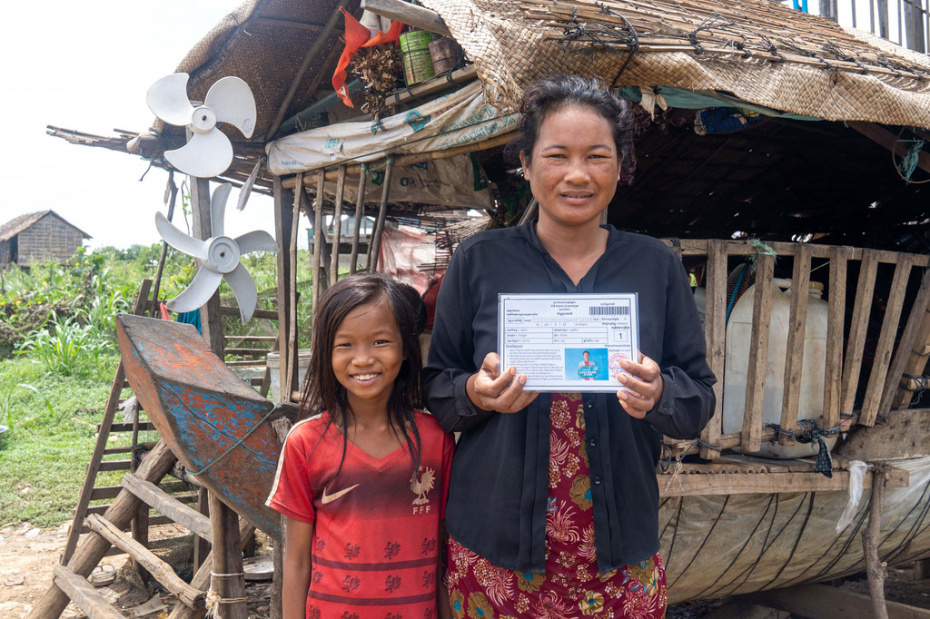Lifeline for vulnerable Cambodians as poverty doubles during COVID-19 pandemic


The government-issued IDPoor card has been providing Yom Malai, a 42-year-old single mother of four children living in the Battambang province of Cambodia, with a lifeline since May 2020. With the card, she is entitled to 176,000 riels (around $43.45) per month, to support herself and her family, using most of it to buy dry food ingredients and rice, products with a longer shelf life, that can be rationed throughout the month.
“We collect the money from a money transfer service”, she says. “During the COVID-19 pandemic, it has been a great help for my family. In addition, if we ever need to go to the hospital, we get medical treatment, care and medicine free of charge”.
No cash, cards only
As a result of the pandemic, poverty is forecast to almost double in Cambodia: the UN estimating that it could reach around 17.6 per cent of the population. With these stark predictions in mind, the government, alongside partners which include UNDP and the UN Children’s Fund (UNICEF), decided to strengthen the level of social protection in the country. The UN’s research indicated that an emergency social protection program would significantly improve both economic growth and the well-being of the most vulnerable.
The UN agencies, and other partners, focused on supporting the new “Cash Transfer Programme for Poor and Vulnerable Households”, by providing the digital tools needed to make it work smoothly and efficiently, and ensure that almost 700,000 people listed on the scheme’s database receive funds in a cashless form, either through their phone or, like Ms. Yom, via a card.

With support from the Government of Australia, UNDP supplied Cambodian Ministry of Planning employees around 1,700 tablet computers, and software, which allowed them to quickly register families that had recently fallen into poverty as a result of the economic slowdown.
“The Government of Australia and UNDP have provided these tablet computers to the Ministry of Planning so that all those registered as poor can receive a cash transfer”, says Nick Beresford, UNDP Cambodia’s Resident Representative. “This expands the UN’s work in social protection and helping the Royal Government of Cambodia build a robust and fully digital IDPoor Programme”.
In Ms. Yom’s village, many households received the IDPoor card. “The officials registered our names in an electronic system so that everyone gets what they are entitled to”, she says, adding that each family first went through an interview process with local officials.

Under the programme, each eligible and registered household receives either $20 or $30 a month, as a basic benefit. In addition, the household receives top-up amounts for members of vulnerable groups including pregnant women, children under 2, the elderly, people with disabilities and people living with HIV.
My family is classified as a level 1 poor household because I am a widow with four children. However, some poor households are struggling but, as their living standards are not as difficult, they are classified as level 2 poor households”, says Ms. Yom.
As well as supporting this emergency cash transfer programme, the UN is supporting the Cambodian Government in other ways. These include procuring critical medical equipment, ranging from bio-hazardous waste bags to ventilators and ambulances, and providing technical support to the Planning Ministry, by producing COVID-19 related communications and awareness raising materials.

